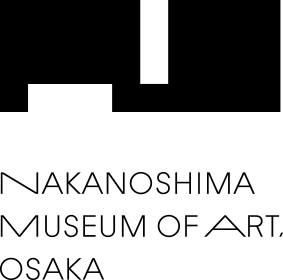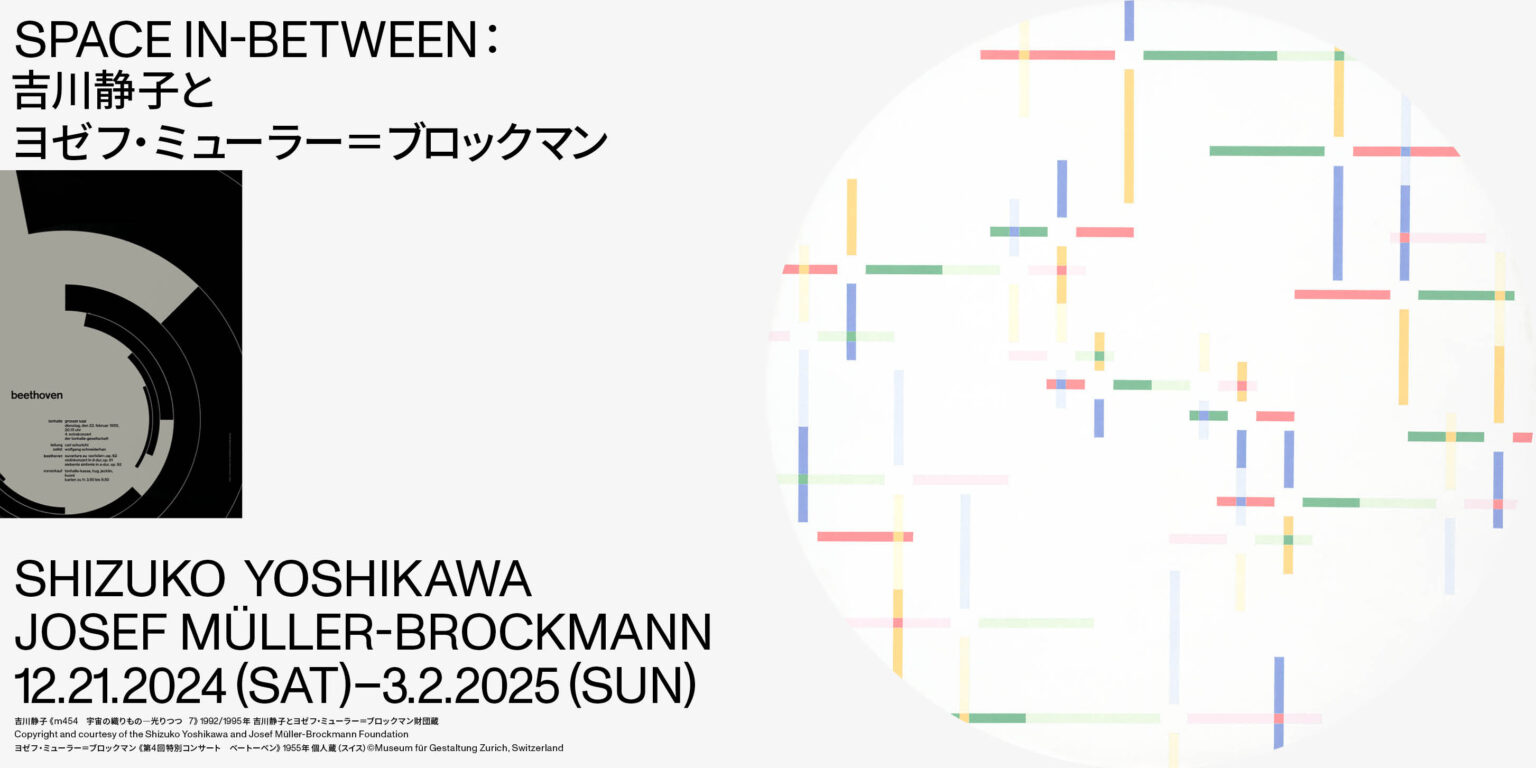
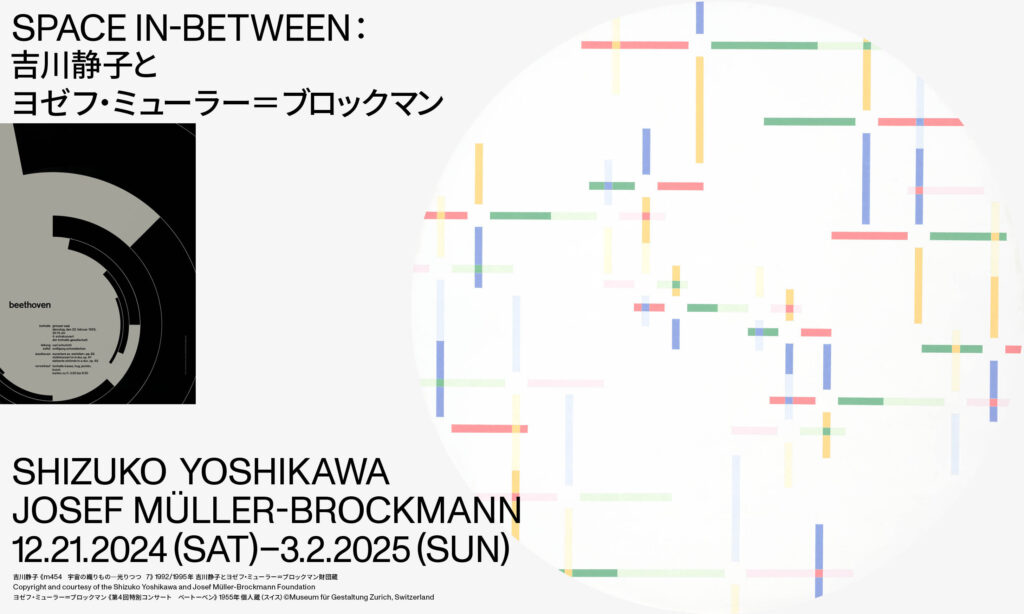
Space In-Between: Shizuko Yoshikawa and Josef Müller-Brockmann
2024-12-21 – 2025-03-02
Summary
It is the first large-scale institutional retrospective to feature either Yoshikawa or Müller-Brockmann in Japan.
Yoshikawa and Müller-Brockmann were Zurich-based art and design educators. They first met at the 1960 World Design Conference in Tokyo, where Yoshikawa, an English graduate from Tsuda University, participated as an interpreter. Inspired by this international event, she moved to Ulm, becoming the first and only female Japanese student at the Ulm School of Design. Later, she worked at Müller-Brockmann's design office in Zurich. Their professional collaboration grew into a lifelong partnership, with each breaking new ground in their fields.
This exhibition highlights Yoshikawa’s art alongside Müller-Brockmann’s structural designs, shedding light on their unique personal and professional transnational relationship.
The exhibition is supported by the Swiss Embassy in celebration of the 160th anniversary of Japanese–Swiss diplomatic relations.
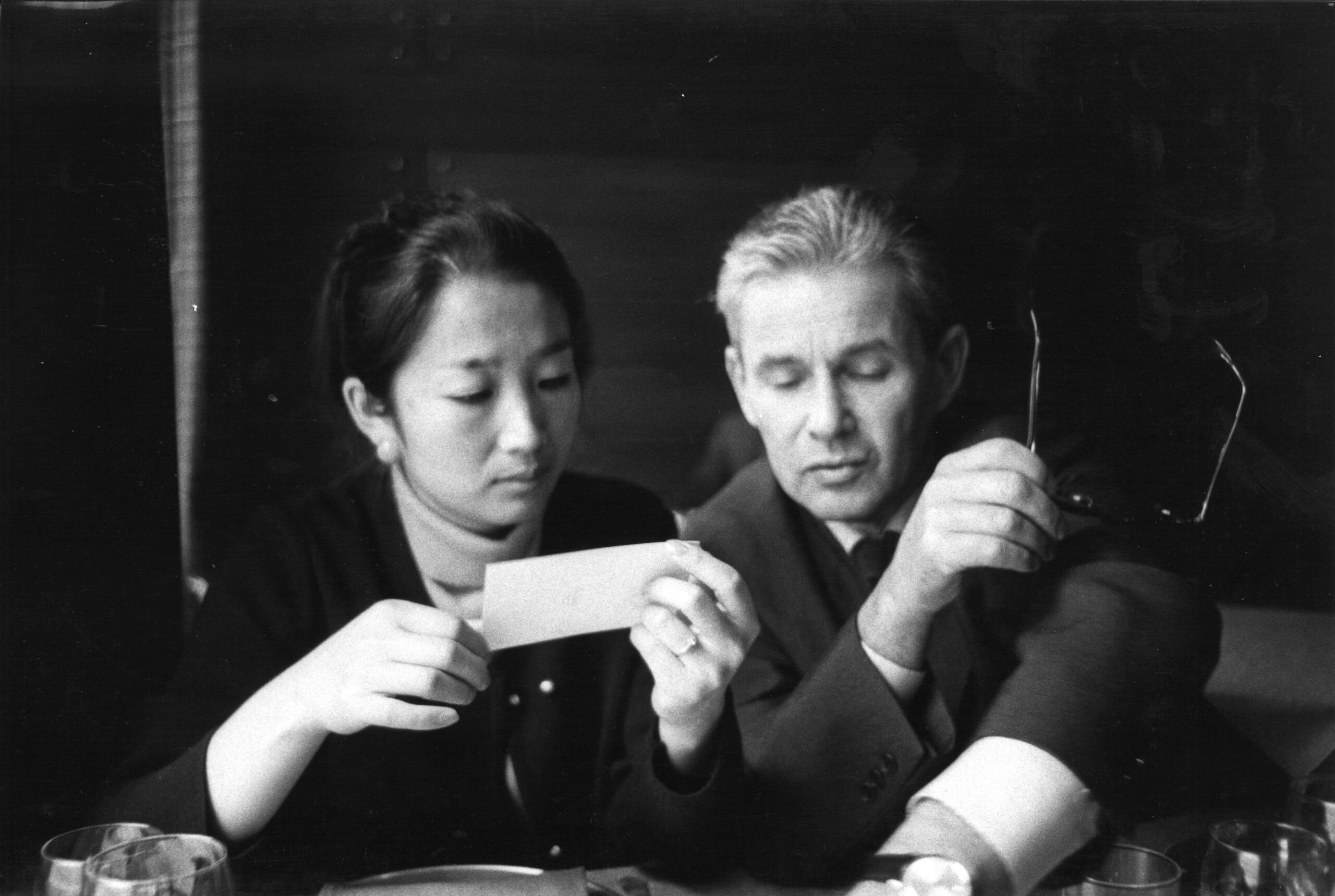
in Zurich, c. 1965
Copyright and courtesy of the Shizuko Yoshikawa and Josef Müller-Brockmann Foundation
Shizuko YOSHIKAWA(1934 – 2019)
A Japanese artist who lived most of her life in Switzerland as a well-educated and self-determined woman. After studying at the Hochschule für Gestaltung in Ulm and being introduced to the Swiss concrete art scene, she married Müller-Brockmann and based her artistic career in Zurich. Emphasizing the atmospheric and ephemeral, she steadily moved away from the concrete traditions supported by modern orthodoxies. Early “color-shadow”-reliefs, drawings dealing with the sun and, in her later years, the series "Silk Road" exemplify this shift. For the first time, a comprehensive selection of her paintings, sculptures, and prints made in Switzerland will be presented in a retrospective at a Japanese museum.
Josef Müller-BROCKMANN(1914 – 1996)
The Swiss design pioneer had been to Japan several times from the 1960s to the 1980s. While deepening his friendships with Japanese designers such as Yusaku Kamekura, he also contributed to Japanese design education by teaching at design schools and art universities. The “grid system” which he named summarizing the methodology for typesetting and composition on paper, continues to have a great influence to this day as a monumental theory in the history of design. He was known as an excellent educator and poster designer, at the same time, his warm personality towards all kind of people has been passed down to this day.
Information about the Exhibition
| Dates | December 21, 2024 – March 2, 2025 Closed on Mondays, December 31, January 1, 14, February 25 *Open on January 13, February 24 |
|---|---|
| Opening hours | 10:00 – 17:00 (last entry 16:30) |
| Venue | Nakanoshima Museum of Art, Osaka 5F Galleries |
| Organizer | Nakanoshima Museum of Art, Osaka |
| Special cooperation | Shizuko Yoshikawa and Josef Müller-Brockmann Foundation |
| Sponsorship | Osaka University of Arts |
| Support | Embassy of Switzerland / Vitality.Swiss |
| Grants | Tadao Ando Cultural Foundation |
| Inquiries | Osaka City General Call Center 06-4301-7285 Hours: 8:00 – 21:00 (365 days) |
| Pre-leaflet |
Works
-
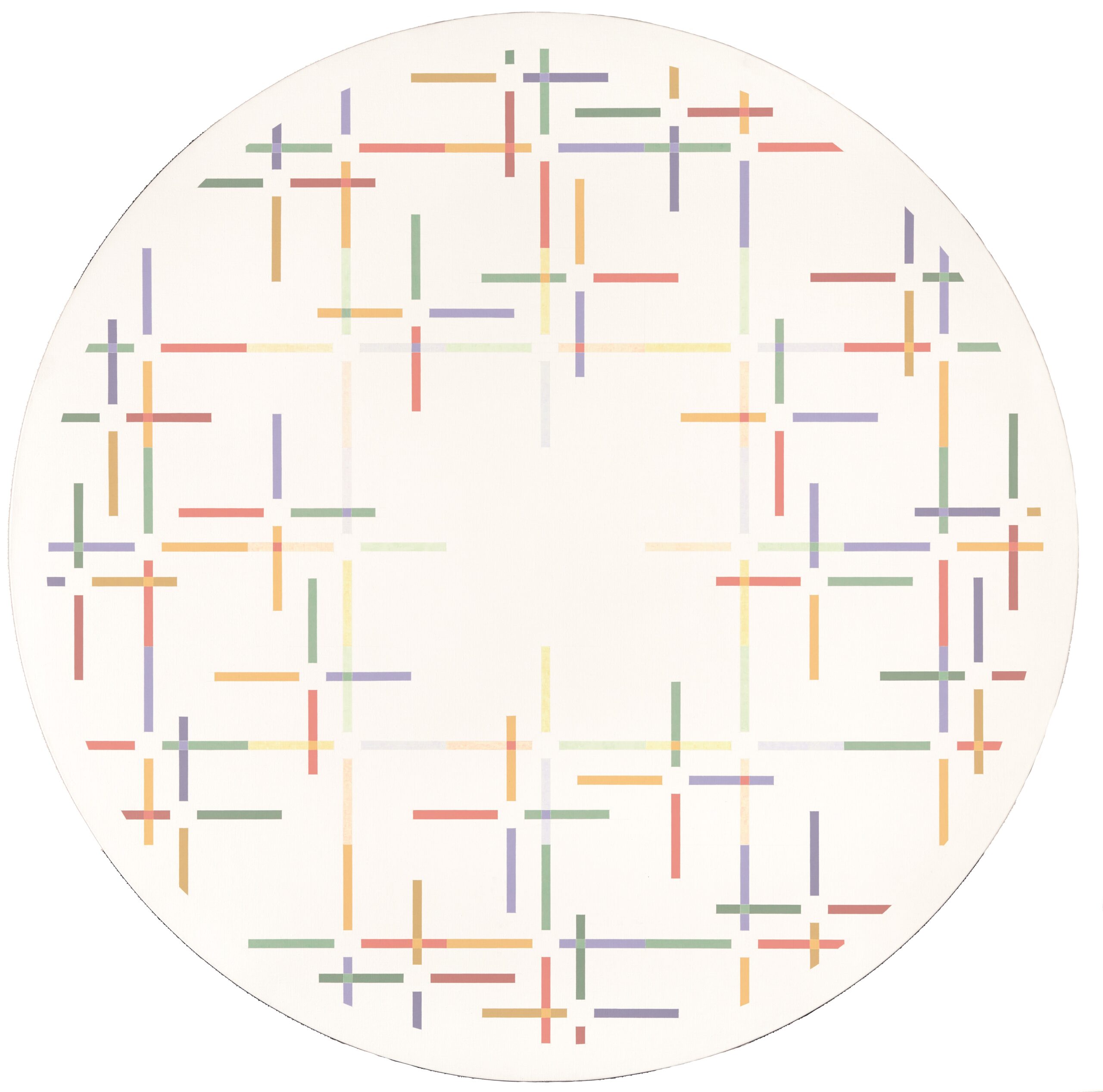
Shizuko Yoshikawa
m434 cosmische gewebe -strahlend 3
1991/1993, Shizuko Yoshikawa and Josef Müller-Brockmann Foundation
Copyright and courtesy of the Shizuko Yoshikawa and Josef Müller-Brockmann Foundation -
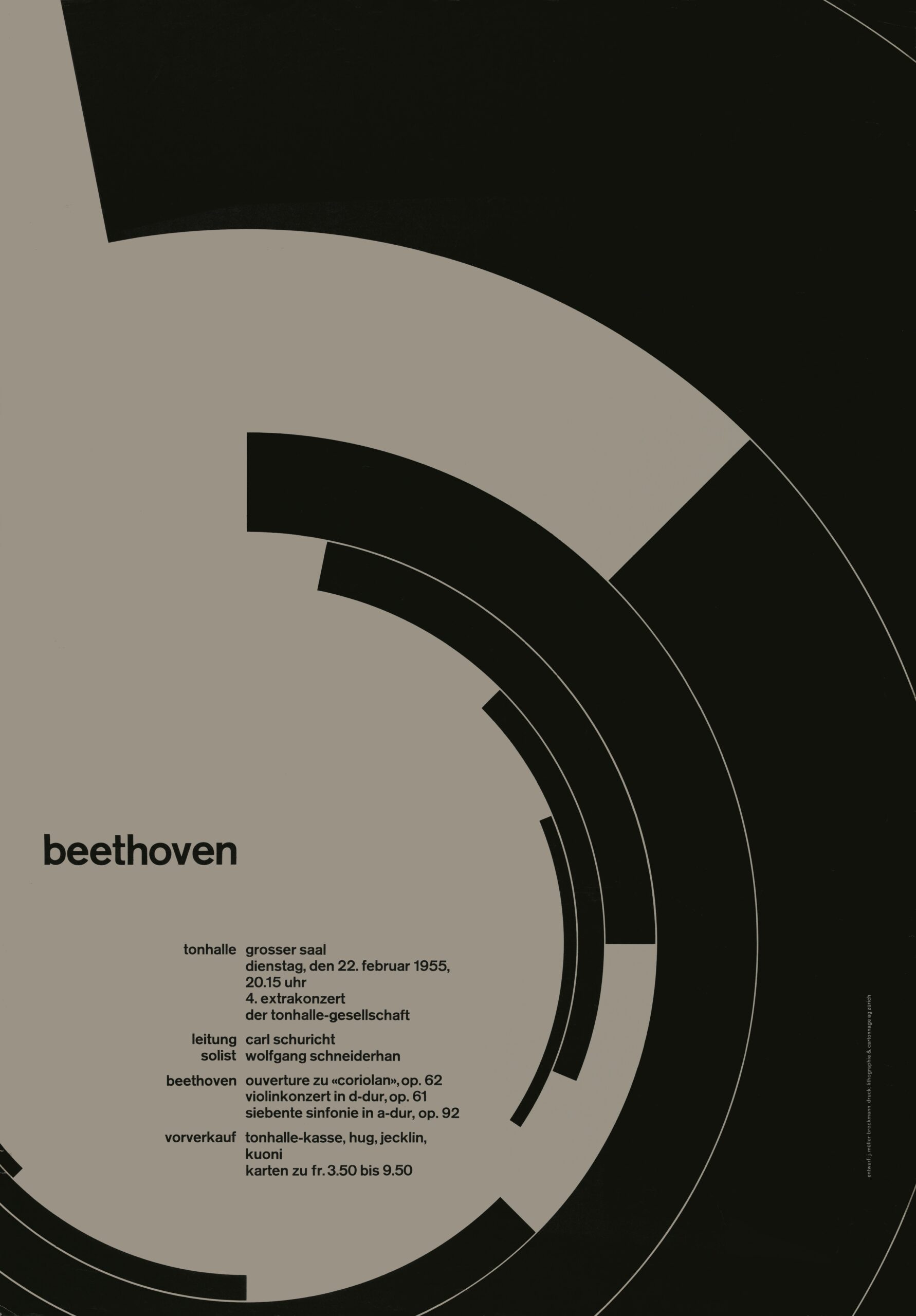
Josef Müller-Brockmann
Zurich Tonhalle, 4th extra concert, Beethoven Concert Poster
1955
©Museum für Gestaltung Zurich, Switzerland -
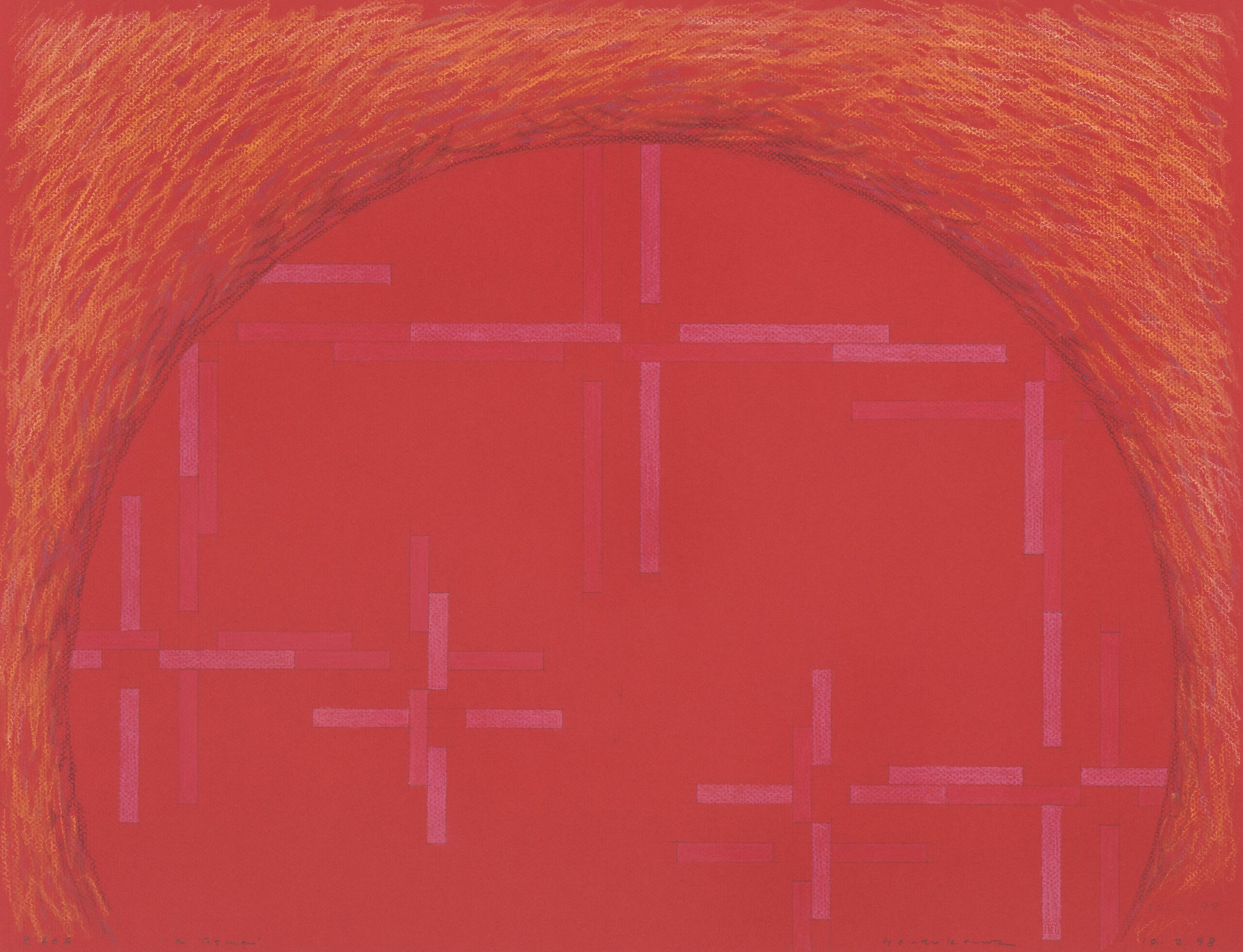
Shizuko Yoshikawa
z606 a roma
1998, Shizuko Yoshikawa and Josef Müller-Brockmann Foundation
Copyright and courtesy of the Shizuko Yoshikawa and Josef Müller-Brockmann Foundation -
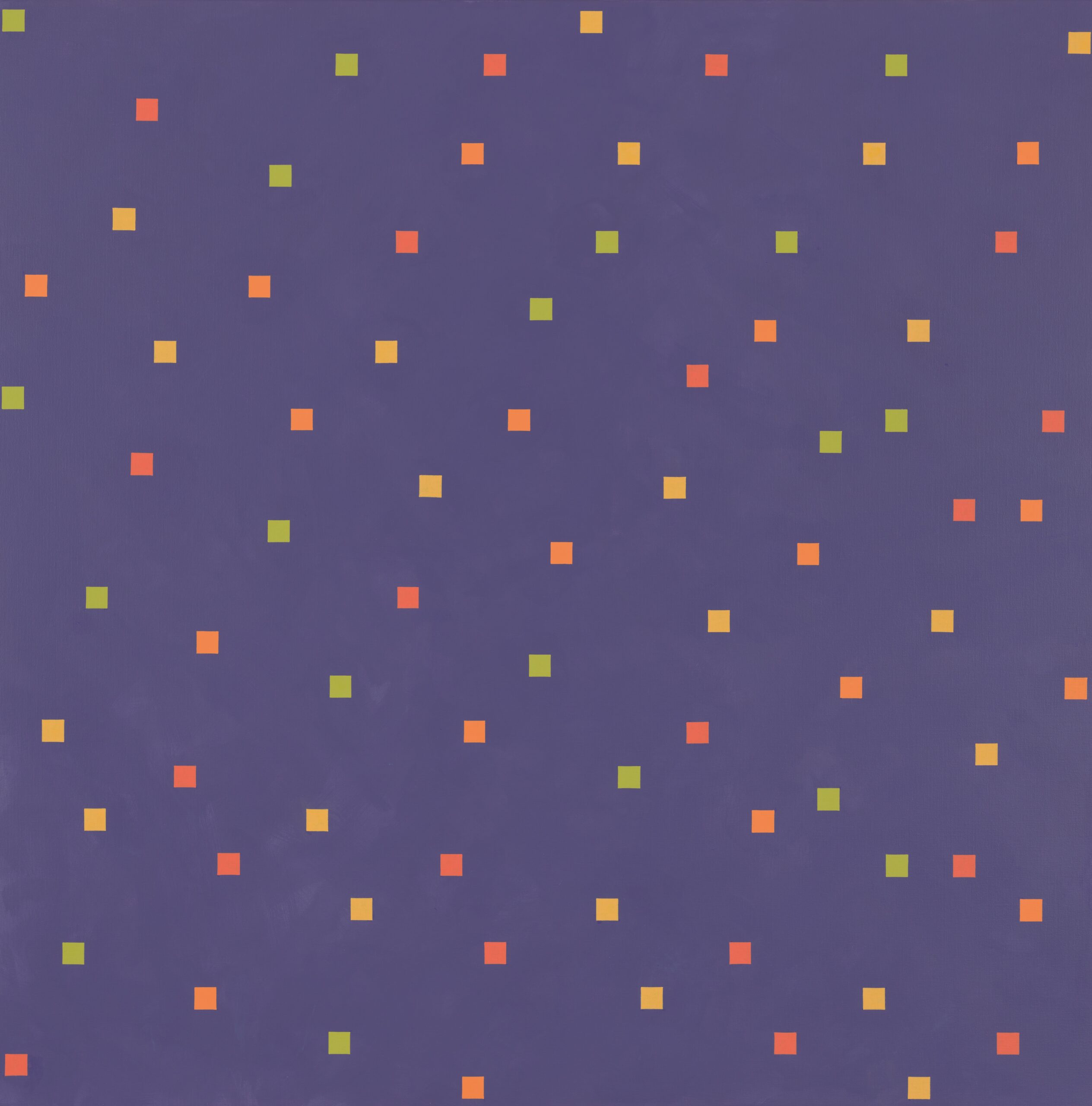
Shizuko Yoshikawa
m780 lebensplus 16
2011/2012, Shizuko Yoshikawa and Josef Müller-Brockmann Foundation
Copyright and courtesy of the Shizuko Yoshikawa and Josef Müller-Brockmann Foundation -
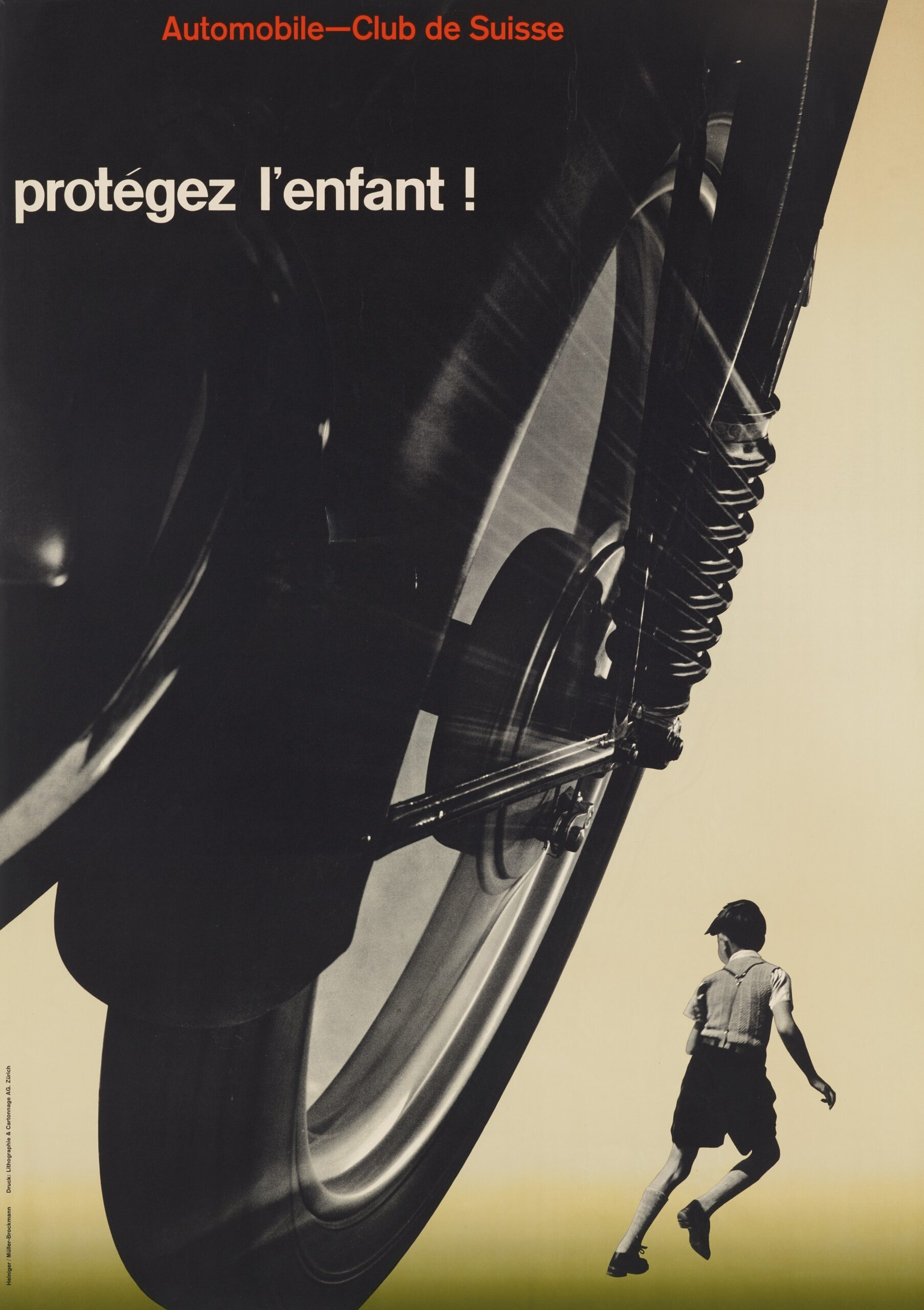
Josef Müller-Brockmann
Swiss Automobile Club “Watch that Child!” Campaign Poster
1953, Suntory Poster Collection (deposited in Nakanoshima Museum of Art, Osaka
©Museum für Gestaltung Zurich, Switzerland -
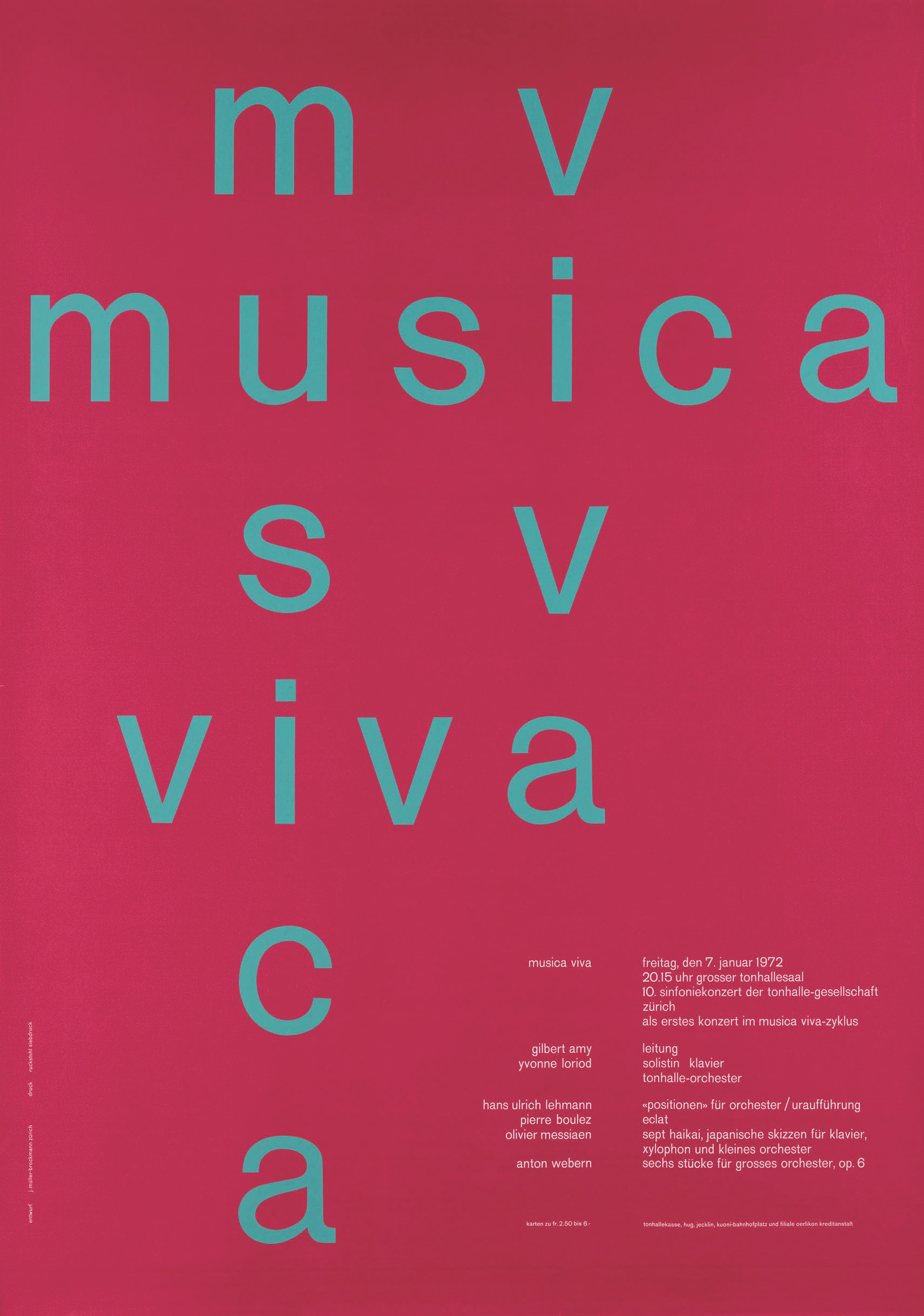
Josef Müller-Brockmann
Musica Viva 1972
1972, Nakanoshima Museum of Art, Osaka
©Museum für Gestaltung Zurich, Switzerland
